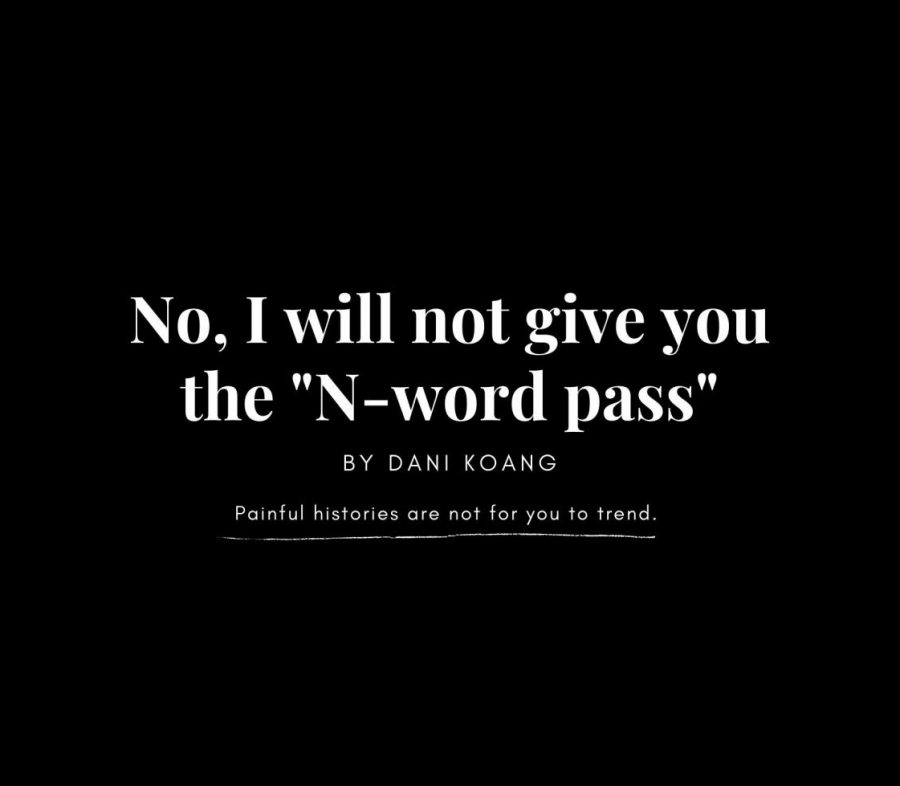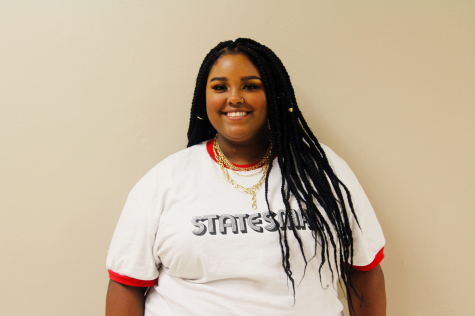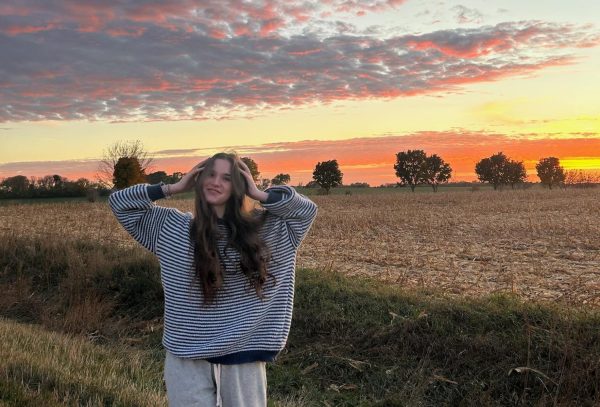No, I will not give you the “N-word pass”
“The n-word is unique in the English language. On one hand, it is the ultimate insult- a word that has tormented generations of African Americans. Yet over time, it has become a popular term of endearment by the descendents of the very people who once had to endure it. Among many young people today—black and white—the n-word can mean friend,” said Sean Price
March 10, 2020
One night, I was scrolling through my TikTok feed and came across a pretty blonde girl, around my age, doing a dance and rapping along to a song. I figured she was just enjoying herself and making a silly video for fun. Who cares, right? Let her be.
But as I watched this video play on, the lyrics of the rap contained the n-word multiple times, and it was brought to my attention that this girl was making no attempt to censor herself.
My immediate reaction was to go to the comments of the video to see what other users had to say about the girl’s use of the word. Hundreds of viewers, including myself, were enraged. How could she be so boldly disrespectful? I then clicked on one of the many hashtags enlisted in her caption and found many other teens of different races: white, Asain, Latino, and blacks alike, following the trend of saying the n-word in a series of rap songs. I was extremely upset and uncomfortable with it all. And with that, I decided that I had had enough of TikTok for one night and closed out of the app.
It has come to my attention that many kids these days think they can say whatever they want. They think that using words with painful histories is funny. But if you ask me, I do not find it amusing. This word has been used to degrade and torment the African-American people for generations.
“The word is inextricably linked with violence and brutality on black psyches and derogatory aspersions cast on black bodies. No degree of appropriating can rid it of that bloodsoaked history,” said Sean Price in his article Straight Talk About the N-Word.
Words do have an impact, whether you would like to believe it or not. It does not make me “sensitive” just because I take offense at the use of derogatory terms or phrases. I would not appreciate it if any other person of color were to use the n-word with me, so why would I ever tolerate a white person calling me such a name?
I can understand why many of the African-American youth have chosen to reappropriate the word, using it to address friends. It is a way for them to reclaim the word as their own. The reappropriation of the word has given them control over it in certain contexts. However, that does not give other people the excuse to use it as well. It is not okay to use the word just because a black friend of yours gave you a special “pass,” or because you think it is “just a word.”
Regardless of how the word is said, whether it is spoken with the ‘hard r’ or the more popular slang version ending with an ‘a,’ it does not make it acceptable for white people, or anyone, to use it. It is not a matter of being unfair because it is not that simple; rather, think of it in terms of respect. Price made a point in addressing the duality of the matter: “We also cannot pretend that there is not a double standard—that blacks can say it without much social consequence but whites cannot. There’s a double standard about a lot of stuff.”
I was speaking with a friend about this matter, and she asked me “But what percentage of blackness makes it acceptable?” And, at the time, I did not have an answer for her. But the truth is there is no amount of sugar coating to state what is obvious: if you are not obviously black, people will take offense. At the end of the day, the people who had to endure persecution were the people with darker skin. I acknowledged the fact that there were people of mixed races all those years ago who too were afflicted. But, what about those who are only a fourth African-American or less? Well, my statement still stands. If it is not obvious in appearance, it will still offend many.
“But even if they are only a percentage of African-American ethnicity, surely it counts for something?”
Well, yes and no. The difference? Appearance. Years ago, if you were walking in the streets somewhere in America, and you happened to be of a mixed race, but it was not apparent, no one would have thought twice. You could continue your stroll without the hassle of white tormentors. No one would say anything. Now, if you were an obviously black individual, you would have constantly faced the clear looks of disgust and frightful eyes of the passersby, as well as the verbal harassment from oppressors. And while it might seem like not a big deal to use the word, even if you are a small percentage of African-American, it would not matter. Because the fact is, if you could pass for white back in those days, you were already significantly better off than the rest of us.
I have been asked too many times in my life, by ignorant people, if they could say the n-word because they were friends with me. My answer has remained the same: No. Absolutely not. My color is not a token for you to light-heartedly throw around racial slurs. Being my friend does not give you special privileges and it does not excuse you to behave poorly.
Using derogatory language does not make you “woke” and it does not make you special. It does not matter if it is a lyric in your favorite rap song. It is 2020; we should be educated enough to respect each other and learn from our past. Being friends with someone of color does not make you the exception. And I really hope that the trend of using this hurtful language will come to an end just as quickly as it began, for all of our sakes.










Ben L • Sep 30, 2021 at 5:42 pm
Kids at my school have been giving out “The N-word pass”, and it’s not a physical thing. They just say that a person has the N-word pass, and then it’s perfectly fine for them to say it. I have said time and again that a “pass” doesn’t erase the history behind the word, and what’s more, they use it as a swear word to refer to white people instead. I want to know why anyone thought this was okay, and why it’s still being used.